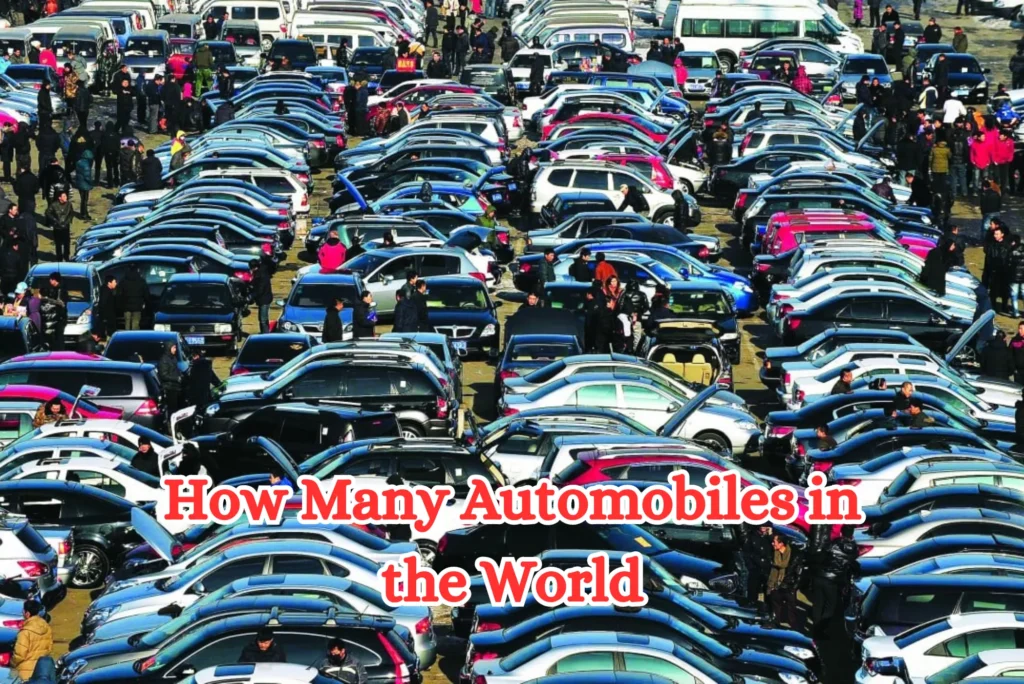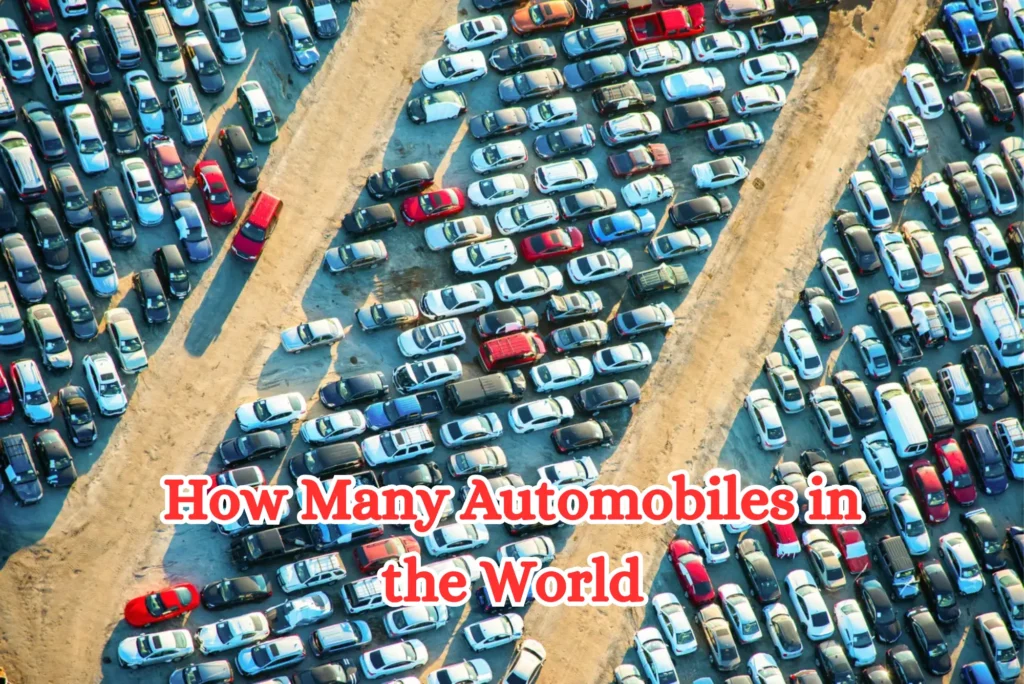How Many Automobiles Are There in the World?
When pondering the sheer magnitude of automobiles scattered across the globe, one might find themselves lost in a sea of numbers. From bustling city streets to remote rural areas, vehicles of all shapes and sizes navigate the world’s roadways. But just how many automobiles are there in total? Let’s delve into the statistics and insights to uncover the answer.
The Global Landscape of Automobiles
In the vast expanse of the world, automobiles have become an integral part of daily life for millions. From densely populated urban centers to expansive rural landscapes, vehicles serve as the primary mode of transportation for countless individuals. However, the distribution and types of automobiles vary significantly from region to region.
Breaking Down the Numbers
To truly understand the global automobile count, it’s essential to dissect the data. Various factors contribute to the total number of vehicles worldwide, including population density, economic development, and cultural preferences. Let’s explore some key insights into the breakdown of automobiles across different continents and countries.

Asia: A Hub of Automotive Activity
Asia stands out as a powerhouse in the world of automobiles, with countries like China, Japan, and India leading the charge. The region boasts a staggering number of vehicles, driven by rapid urbanization, economic growth, and increasing consumer demand. From bustling metropolises to sprawling suburbs, cars dominate the streetscape in many Asian cities.
Europe: A Blend of Tradition and Innovation
In Europe, automobiles are deeply intertwined with the continent’s rich history and cultural heritage. With iconic brands like Mercedes-Benz, BMW, and Volkswagen calling Europe home, the region has long been synonymous with automotive excellence. Despite challenges such as stringent emissions regulations and urban congestion, Europe continues to maintain a significant presence in the global automotive market.
North America: The Land of the Automobile
From the sprawling highways of the United States to the vast landscapes of Canada, North America is synonymous with automotive culture. The region boasts some of the highest rates of car ownership in the world, fueled by a love affair How Many Automobiles in the World that dates back over a century. With a diverse range of vehicles, from pickup trucks to electric cars, North America remains a key player in the global automotive industry.

Africa: Navigating Challenges and Opportunities
Africa presents a unique set of challenges and opportunities in the realm of automobiles. While car ownership levels vary widely across the continent, urban centers like Lagos, Nairobi, and Johannesburg are experiencing a surge in vehicle numbers. However, issues such as infrastructure limitations, economic disparities, and environmental concerns pose significant hurdles to sustainable automotive growth in many African nations.
South America: Driving Forward with Innovation
In South America, automobiles play a vital role in both urban and rural life. Countries like Brazil and Argentina are major players in the automotive industry, with thriving manufacturing sectors and a growing market for passenger vehicles. Despite economic fluctuations and political uncertainties, South America continues to drive forward with innovation and adaptation in the automotive sector.
The Ever-Evolving World of Automobiles
In conclusion, the global automobile count is a dynamic and ever-evolving metric that reflects the complex interplay of factors shaping our world. From technological advancements to socioeconomic trends, the landscape of automobiles is constantly shifting. By staying informed and aware of these trends, we can gain valuable insights into the past, present, and future of automotive mobility.
The world of automobiles is in a constant state of flux, shaped by numerous factors that impact everything from production and consumption to design and innovation. As the automobile industry continues to evolve, it not only reflects global trends but also influences them in profound ways. The number of vehicles on the road worldwide is more than just a statistic—it mirrors the advancements in technology, shifts in consumer behavior, and the economic, environmental, and social forces at play.
Technological Advancements in Automobiles
One of the most significant drivers of change in the automotive world is technology. Over the past few decades, we’ve witnessed the rise of electric vehicles (EVs), autonomous driving systems, and connected cars. EVs, in particular, are reshaping the industry, as governments around the world push for greener, more sustainable transportation options. With global commitments to reduce carbon emissions, electric and hybrid vehicles are becoming mainstream, replacing traditional internal combustion engine (ICE) cars.
Autonomous vehicles (AVs) are another area of rapid development. Self-driving technology, while still in its nascent stages, is expected to revolutionize transportation. Major tech companies and automakers are heavily investing in AVs, with the potential to reduce accidents, improve traffic management, and transform urban mobility.
The integration of artificial intelligence (AI) and the Internet of Things (IoT) has given rise to smart vehicles, equipped with advanced sensors, real-time navigation, and safety features like automatic braking and lane assistance. These connected cars are becoming an integral part of the larger smart city ecosystems, where vehicles can communicate with each other and infrastructure to improve overall efficiency.
Changing Consumer Preferences
Consumer preferences are also evolving, as people become more aware of environmental issues and the rising cost of owning and maintaining vehicles. Ride-sharing services like Uber and Lyft have introduced a shift in how people view car ownership, with many opting for convenience over possession. Car-sharing platforms, electric scooters, and bicycles have gained popularity in urban areas, reducing the need for personal vehicle ownership.
Additionally, the COVID-19 pandemic has influenced car-buying behaviors, as people prioritize safety and personal space. This has led to an increased demand for private vehicles, but also a growing interest in digital automotive solutions, such as online car purchasing platforms and contactless servicing options.
Socioeconomic Trends
Socioeconomic trends also play a critical role in shaping the automotive industry. Emerging economies, particularly in Asia and Africa, are seeing a surge in vehicle ownership as incomes rise and urbanization accelerates. In contrast, developed countries are experiencing a shift toward more sustainable and efficient transportation solutions.
The global automobile market is also impacted by regulatory changes. Governments around the world are implementing stricter emissions standards and incentives to encourage the adoption of cleaner technologies. The push for green transportation has prompted automakers to invest heavily in research and development of alternative fuel sources, such as hydrogen fuel cells, biofuels, and solar-powered cars.
The Rise of Shared and Autonomous Mobility
The advent of shared and autonomous mobility is another transformative trend. Companies like Tesla, Waymo, and Uber are spearheading efforts to create fleets of autonomous ride-sharing vehicles, which could reduce the need for individual car ownership in the future. This shift has the potential to decrease traffic congestion, reduce greenhouse gas emissions, and lower transportation costs.
Shared mobility models, such as car-sharing and ride-hailing services, are changing the way people move in cities. In the future, a combination of autonomous, electric, and shared vehicles could dominate urban transportation systems, making them more efficient and accessible.
Environmental and Sustainability Concerns
The automotive industry has been under increased pressure to address environmental and sustainability issues. The rise of climate change awareness has led to a growing demand for eco-friendly vehicles. Governments, automakers, and consumers are working together to reduce the environmental impact of automobiles, with a strong focus on reducing greenhouse gas emissions and developing more energy-efficient vehicles.
In response, automakers are designing cars that are lighter, more fuel-efficient, and built with sustainable materials. The circular economy concept is being embraced, with a focus on recycling and reusing parts to reduce waste. Moreover, battery recycling and second-life uses for electric vehicle batteries are areas of increasing research and development.
Future of the Automotive Industry
Looking ahead, the automotive industry will continue to evolve at a rapid pace. The convergence of various technologies, including AI, machine learning, 5G connectivity, and blockchain, is expected to create new opportunities for innovation. Autonomous vehicles, shared mobility, and smart transportation networks will transform how we move, while electrification and alternative fuels will pave the way for a greener future.
Automakers will need to adapt to these changes by developing new business models, focusing on sustainability, and embracing digital transformation. As more consumers prioritize environmental consciousness, automakers will have to strike a balance between performance, convenience, and eco-friendliness.
Car Detailing
Car detailing is a meticulous process that involves cleaning, polishing, and protecting the interior and exterior surfaces of a vehicle. From the gleaming finish of the paintwork to the spotless interior upholstery, detailing aims to restore and maintain your car’s appearance to its pristine condition. Whether you’re preparing for a special occasion or simply want to keep your vehicle looking its best, professional car detailing can make a world of difference.
Mubarak Auto Spare Parts
Mubarak Auto Spare Parts is a leading provider of high-quality automotive components and accessories. With a vast inventory of parts for various makes and models, Mubarak Auto Spare Parts offers customers a convenient and reliable source for all their automotive needs. Whether you’re a DIY enthusiast or a professional mechanic, you can count on Mubarak Auto Spare Parts to provide top-notch products at competitive prices.



